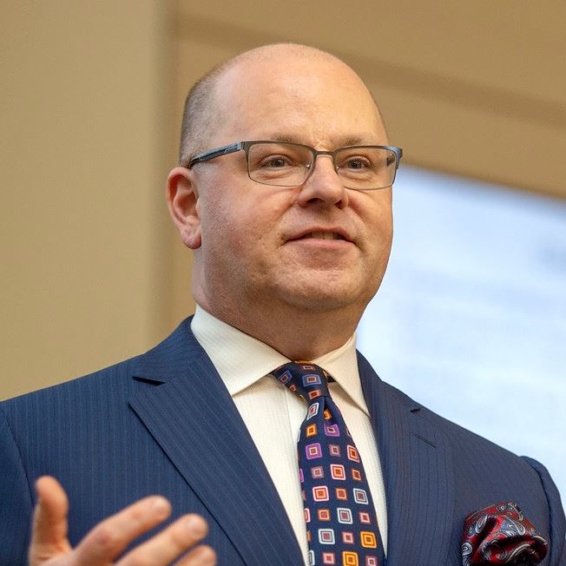A new cycle of technology governance has begun. The Stanford Center for Responsible Quantum Technology brings together the quantum community in diverse, multidisciplinary settings to investigate how society should balance maximizing benefits and mitigating risks of an exciting new generation of applied quantum technologies in computation, sensing, simulation, cryptography, communication, materials & devices, and quantum-classical hybrid approaches, taking a pro-innovation stance. Our annual highlight is the Stanford Responsible Quantum Technology Conference. The Center is founded by Mauritz Kop, and is part of the Stanford Program in Law, Science & Technology.
Project Spotlight
Stanford Quantum Incubator
The Stanford Quantum Incubator (SQI) stands as a pivotal business catalyst, dedicated to advancing quantum technology development and adoption both regionally and nationally. At its core, SQI bridges the gap between academia and industry, fostering an environment ripe for much needed innovation and economic growth. Operating from the center of the emerging quantum startup scene, the Stanford Quantum Incubator helps galvanize and attract startups and university spin-offs in the quantum/AI space, in addition to the investment community (VCs, angels, incubators, accelerators, banks, funds) and other stakeholders who are part of the ecosystem (hardware/chip manufacturers, cloud, software, networks).
View Project
Mission
As with any emerging technology like semiconductors, applied, generative and interactive artificial intelligence (AI), biotechnology, extended reality (XR), nano and nuclear, there are interconnected ethical, legal, socio-economic, and policy implications (Quantum-ELSPI) that must be proactively considered. For example, quantum technologies are inherently dual use, characterized by a long investment and R&D phase coupled with uncertain outcomes and rewards, unseen capabilities, and a Pandora’s Box of probabilities and unknown risks. Utilizing anticipatory governance strategies such as technology forecasting, horizon scanning, scenario planning, and impact assessment, these aspects should be understood and studied within their inherent interconnection and interdependence, before the technology becomes locked in.
Descriptively, Quantum-ELSPI refers to research focused on the societal aspects of QT. Normatively, Quantum-ELSPI can serve as a metaparadigm that sets an interdisciplinary research agenda. As such, it can inspire a unified account and practice of Responsible Quantum Technology (RQT). RQT integrates ELSPI considerations into quantum research, development and adoption, while responding to core RRI dimensions of anticipation, reflection, openness, transparency, responsiveness, adaption to change, diversity, and inclusion. RQT can be operationalized by using a principled approach. Principles for Responsible Quantum Technology & Innovation are organized into three functional categories (SEA), geared towards safeguarding, engaging, and advancing QT, society, and humankind. These principles are grounded in the values of responsible research and innovation (RRI). RQT is a framework designed to ensure that research and innovation efforts meet societal demands & expectations and enhance planetary welfare.
Through cutting edge mixed method research by Stanford University professors, staff, students, and nonresidential fellows, the Center endorses scientific inquiry and public discourse on the legal, sociocultural, philosophical, governance, legislative, and regulatory implications of accelerated technological change propelled by the extravagant suite of quantum technologies. Special emphasis lies on combinations of quantum with machine learning, generative and multimodal, interactive AI that are currently entering the global markets. Research output includes publications in law reviews, peer reviewed technical journals, projects within the nexus of quantum and law, conferences, workshops, lectures, public policy initiatives, its RQT Research Series and blog, as well as collaborative projects with other institutions. Anticipating rapid industrial development and adoption of hybrid quantum computing, quantum artificial intelligence (QAI) including quantum machine learning and quantum neural networks, the Center investigates the relationship -including potential synergies- between the Quantum-ELSPI metaparadigm and principled, legal-ethical approaches to AI such as Responsible, Trustworthy, Human Centered, and Constitutional AI.
In the era of quantum utility, the Center’s mission is to engage multidisciplinary teams of leading scholars to study how and why the potential transformative power and societal impact of hypercomplex second generation quantum technologies directly harnessing counter-intuitive quantum-mechanical effects such as superposition, entanglement, teleportation of quantum states, and tunneling to achieve quantum advantage over classical technologies in both qualitative (unseen capabilities and functionality) and quantitative (faster, more accurate) ways, urges us to proceed and innovate responsibly. While classical tech is constantly improving too, with classical high performance computing (HPC) and classical sensing persistently increasing in speed and fidelity. Ideally, such teams should consist of specialists in quantum physics, engineering, law, economics, ethics, medicine, biology, neuroscience, mathematics, deep learning, data & information science, and evidence-based sustainable innovation policy.
Actively stewarding the societal impact of quantum centric applications and use cases towards beneficial, inclusive and equitable societal outcomes, the Center examines how to balance safeguarding society by putting guardrails in place with advancing quantum driven progress by incentivizing innovation, enabling a prosperous, quantum safe future for everyone. Promoting creativity, imagination, and lateral thinking, the Center connects natural and physical sciences, social sciences, humanities, and paradigms in art beyond research silos to create rich, synergetic insights focused on ensuring that quantum research and innovation efforts meet societal demands and enhance planetary welfare, guided by a framework for Responsible Quantum Technology.
News
SLS’s Mauritz Kop Discusses Quantum Technology and the Need for Legal and Policy Guardrails
Legal Aggregate
Mauritz Kop was interviewed.
Read MoreThe Center’s 5 main goals are:
- Bringing the quantum community together within a quadruple helix of academia, regulators, industry and end users during the annual Stanford Responsible Quantum Technology Conference. Our quantum physics and art-inspired law Conference delivers insights and actionable recommendations on how, where, & when to address identified opportunities and challenges surrounding quantum and AI. In addition, the Center and its Conference seek to strengthen ties between the Silicon Valley Science, Technology, Engineering, and Mathematics (STEM) research & education community, ethico-legal scholars, and the fine arts communities including opera and classical music, connecting art-making knowledge and skills into interdisciplinary problem solving processes.
- Learning from pioneering Bay Area companies about the state of the art in QT and exploring together novel use cases and their societal impact beyond cybersecurity and data privacy in industries ranging from Healthcare and Finance to Energy and Defense, through Quantum Impact Assessment and the Quantum Technology Anticipator.
- Discussing in inclusive, intergenerational settings what RQT amounts to and by which processes one can practice it, from applied physics R&D to adoption. Building lifelong bridges of mutual understanding and trust between disciplines, generations and cultures, actively and deliberately steering towards norms and values-based quantum ecosystems with beneficial societal outcomes and a quantum safe future on the planetary level. Domain- or application-specific RQT includes responsible quantum sensing & metrology, responsible quantum networking & communication, responsible quantum computing, responsible quantum imaging, and so forth. One way to put RQT into practice, is by prioritizing investments in quantum applications that support the United Nations Sustainable Development Goals (SDG) and by promoting novel quantum UN SDG-use cases.
- Investigating the interface between intellectual property in quantum technology inventions and discoveries such as patents and trade secrets, fair competition & antitrust, and national and economic safety and security. Studying how technical standards like NIST’s postquantum cryptography standardization efforts resulting in the first four quantum resistant cryptographic algorithms, together with certification, market authorization, liability & insurance can shape global innovation ecosystems. Exploring governance tipping points, geopolitics, export controls and supply chains, non-proliferation, globally harmonized guardrails for quantum, distributive justice, and innovation that should be as open as possible and as closed as necessary, while safeguarding human rights, fundamental freedoms, and reinforcing universal democratic principles and values.
- Teaching and informing policy makers and the judiciary (judges and courts) about good governance principles and strategies that capitalize on the exceptional opportunities and challenges of 2G QT, at our Congressional Quantum Bootcamp. Surveying how quantum theory may hold lessons for legal theory and in what manner quantum mechanics can be applied in quantum computational law. Why one should prepare society for the Second Quantum Age through strategies such as creating virtuous cycle of innovation network effects for the semiconductor industry by advancing rapidly-emerging fault tolerant operation of error corrected logical qubit quantum computers, circuits, algorithms and quantum data centers. When and where implementing sensible STEM immigration rules makes sense. By which methods we should pursue embedding values and norms into the imminent quantum internet and repeater network interoperability standards and protocols. The Center aims to cultivate quantum intuition, awareness & literacy and intends to contribute to building a skilled, interdisciplinary quantum-workforce that represents all groups in society.






